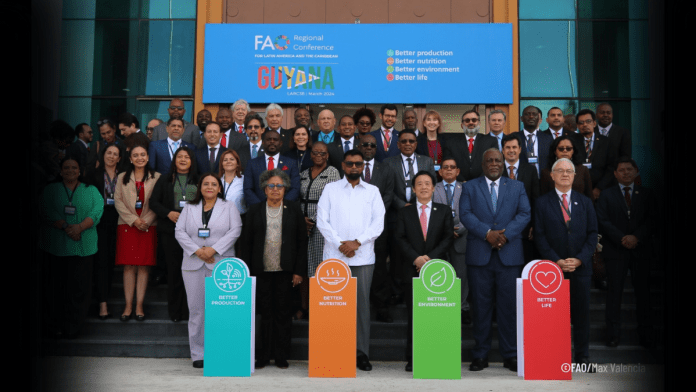News In Brief:
– Latin America and the Caribbean grapple with persistent hunger and inequality despite being a net food exporter.
– FAO calls for regional collaboration and targeted interventions to safeguard food security, mitigate climate risks, and empower small-scale farmers.
The Food and Agriculture Organization of the United Nations (FAO) recently issued a clarion call for action to address persistent hunger and inequality in Latin America and the Caribbean.
The region is facing the brunt of food insecurity and FAO Director-General QU Dongyu emphasised the urgency to protect the most vulnerable, particularly local farmers, in the face of macroeconomic volatility and climate change.
Despite being a net food exporter, the region grapples with a rise in undernourishment, exacerbated by the COVID-19 pandemic. While South America sees a modest decline in hunger, Mesoamerica and the Caribbean witness stagnant or worsening conditions. These stark realities underscore the need for targeted interventions to safeguard food security and nutrition, especially among marginalised communities and small-scale farmers.
President Mohamed Irfaan Ali of Guyana stresses the imperative of building resilient agrifood systems amidst escalating climate threats. Emphasising data-driven decision-making and a return to nutritious, locally-sourced foods, Ali advocates for proactive measures to mitigate climate risks and enhance food sovereignty.
Highlighting the significance of regional cooperation, FAO underscores the pivotal role of Latin America and the Caribbean in global agrifood markets. By fostering multilateral partnerships and leveraging initiatives like the G20 Task Force, FAO aims to mitigate price shocks and bolster food supply chains, thereby alleviating the burden on vulnerable populations.
As discussions at the Regional Conference delve into key priorities, including fisheries, aquaculture, and sustainable trade practices, FAO’s comprehensive approach seeks to promote inclusive rural development and sustainable resource management. Through targeted investments and innovative initiatives, such as the FAO 1000 Digital Villages and One Country One Priority Product, the region strides towards a future of equitable growth and resilience.



